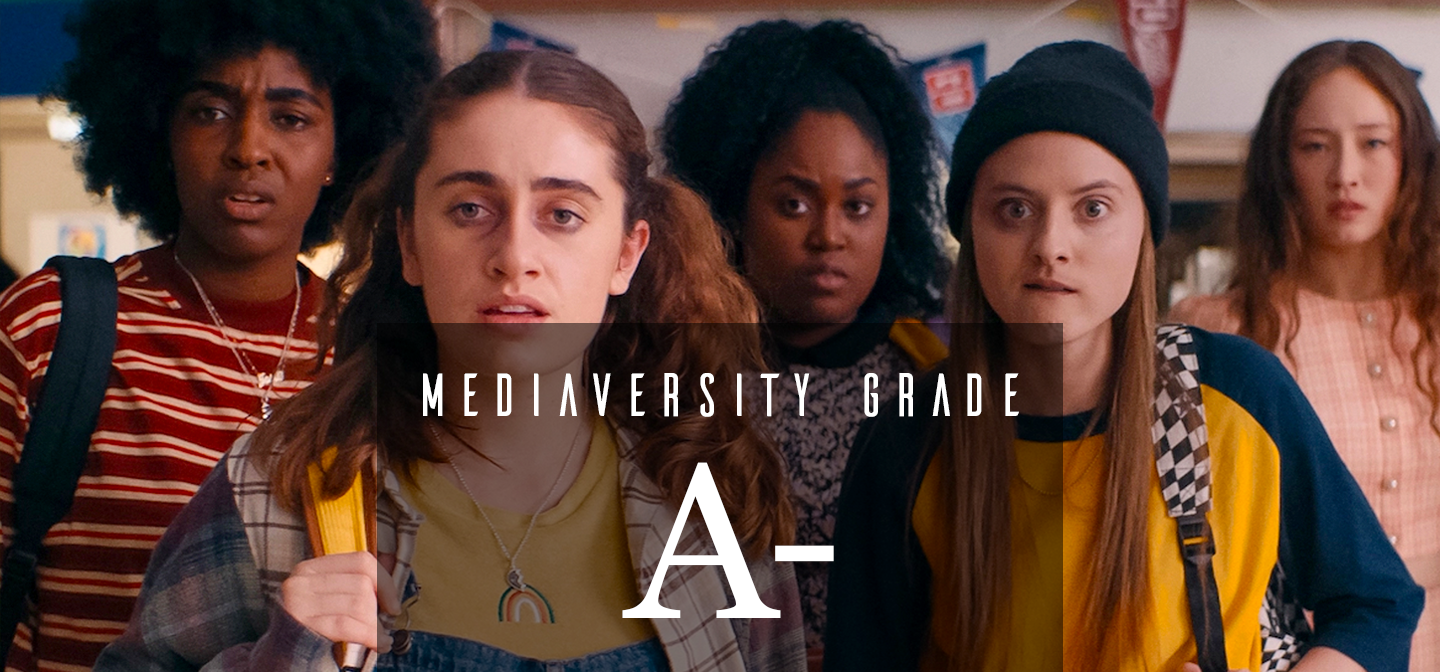Drive-Away Dolls
“Drive-Away Dolls is a great example of what beloved directors can do when they try out new types of characters and identities in their stories.”
Title: Drive-Away Dolls (2024)
Director: Ethan Coen 👨🏼🇺🇸
Writers: Ethan Coen 👨🏼🇺🇸 and Tricia Cooke 👩🏼🇺🇸🌈
Reviewed by Li 👩🏻🇺🇸
Technical: 3/5
For those of you familiar with the work of the Coen brothers, Ethan Coen’s Drive-Away Dolls will feel like a remix of past films. You’ll find bickering lackeys and abrupt violence the likes of Fargo (1996). And like The Big Lebowski (1998), Drive-Away Dolls centers around innocent bystanders, mistaken for criminals, who get swept up in seedy underworlds nonetheless. But Coen and co-writer Tricia Cooke’s movie successfully sets itself apart with the addition of rom-com hijinks.
Fizzy chemistry between lesbian leads Jamie (Margaret Qualley) and Marian (Geraldine Viswanathan) refresh the formula, and a breezy run-time of 84 minutes further accelerates what feels like a whirlwind story. At times, its lack of character backstories and mundane, disposable villains lend the sense of watching a TV episode rather than a full-length feature film. But in a time of overwrought works that last well into two or three hours long, Drive-Away Dolls is bracingly unpretentious. Dildos haven’t been this much fun since 2022’s Everything Everywhere All At Once. Yes, the beats are familiar and there isn’t much depth to be found. But Coen has his signature style down pat, and that isn’t a bad thing.
Gender: 5/5
Does it pass the Bechdel Test? YES
Women are everywhere—as leads, as love interests, as everyday background people. This is firmly a movie that doesn’t forget that women make up more than half the U.S. population. The fact that the antagonists in the film are all men simply lend this film an even stronger female gaze. Drive-Away Dolls glibly lets us know men aren’t necessary, and really, are just a hindrance to living life and having a laugh.
Race: 3.5/5
People of color naturally filter through this film, but Drive-Away Dolls isn’t interested in exploring racial or ethnic identity. Although one of the two main characters, Marian, is played by Viswanathan, who’s Indian-Swiss Australian, the role is fairly colorblind. At best, we meet Marian’s Aunt Ellis in a short scene, played by Black American actor Connie Jackson, showing that Marian does have a family that isn’t white. And Afro-Latino, Philadelphia-born actor Colman Domingo (who’s family comes from Belize and Guatemala) has a key role, though he’s underused as a two-dimensional villain with no backstory, especially given the way his screen time is cut short by an abrupt plot point.
Bonus for LGBTQ: +1.00
The film is gay gay gay, and that’s its greatest selling point. The queer sensibility is helped by Cooke’s own identity as a lesbian, the film originally working under the title Drive-Away Dykes, making clear this perspective is baked into the film, rather than tacked on after the fact. Here, lesbians are empowered by their sexuality, Jamie’s hedonistic tendencies are a welcome portrayal in a medium that tends to hypersexualize lesbians through a male gaze, where gay women are treated as titillating objects for a presumably straight male audience. Here, Drive-Away Dolls’ female gaze is quite literal: Marian, as a suburban kid (played by Samsara Yett in this flashback), becomes fascinated with a neighbor after spotting the adult woman sunbathing and swimming while naked. Marian drills a peephole through their fence to take in the view. The camera could’ve easily slipped into voyeurism, but Coen smartly keeps the focus on Marian herself, with close-ups on the girl’s face and widening eyes, making it clear that this scene is about a girl’s revelation about herself, and not about the naked woman we watch onscreen.
Similarly, the romantic scenes of women kissing and having sex could’ve skirted into exploitative territory, but the camera stays respectful of the young women by maintaining a level of distance, mainly through comedy. The film’s more sexual scenes, such as Jamie’s one night stands full of oral sex and strap-ons, or when she masturbates, are conveyed through campy, over-the-top humor, all loud moaning and gaping mouths and furious, jackrabbit motions that desexualize the scenes in question. Meanwhile, scenes of tender love, attraction, and kissing are given more realism, ensuring that Drive-Away Dolls always humanizes its lesbian characters.
Mediaversity Grade: B+ 4.17/5
This short, punch-drunk movie comes in like a messy hurricane but travels a predictable path, hitting familiar Coen beats while keeping things fresh by centering a lesbian romance. It’s a great example of what beloved directors can do when they try out new types of characters and identities in their stories. In this case, Drive-Away Dolls is an entertaining combination of old and new.




